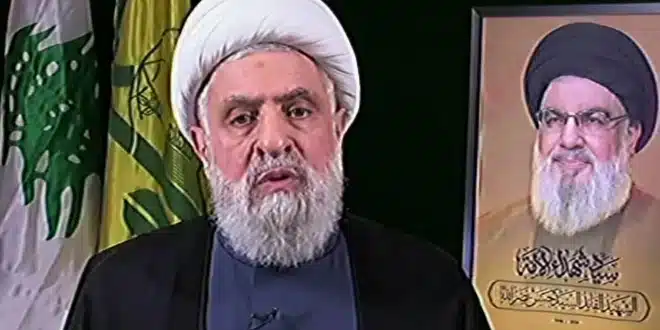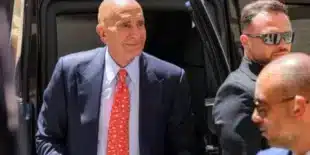Over a month into the ongoing conflict with Israel, Hezbollah has indicated its readiness for a ceasefire, though analysts note there are limits to what it can accept following intense assaults.
The Iran-backed group stated on Wednesday that it would be open to a ceasefire under acceptable conditions, acknowledging it had suffered significant damage from Israeli strikes. On the same day, Lebanon’s Prime Minister Najib Mikati revealed he had received indications from U.S. envoy Amos Hochstein that a truce could be established before the U.S. elections on November 5.
With the loss of key leaders and the destruction of strongholds, Hezbollah could benefit from the opportunity to regroup that a truce might provide. According to Lebanese analyst Qassim Qassir, close to Hezbollah, a ceasefire would be a priority for the group, allowing it to reorganize. Hezbollah may agree to the Lebanese army’s deployment in the south and avoid the border but won’t accept more stringent demands from Israel, which has called for Hezbollah to pull back around 30 kilometers from the border.
Hezbollah, initially engaging in cross-border fire with Israel last year in support of Palestinian ally Hamas, has been put on the defensive since the war escalated on September 23. Israel has killed top Hezbollah leaders, including its chief Sayyed Hassan Nasrallah and Sayyed Hashem Safieddine, his potential successor, creating a leadership gap and exposing an apparent intelligence breach.
Israeli forces have advanced close to the town of Khiam, about six kilometers from the border, although Hezbollah insists Israeli forces do not fully control any border villages. In eastern Lebanon, Hezbollah’s infrastructure, including tunnels and arms routes from Syria, have been targeted, with at least two land crossings with Syria closed and flights from Iran, Hezbollah’s backer, barred from landing at Beirut’s airport.
According to Maha Yahya, director of the Carnegie Middle East Center, Hezbollah’s capabilities have been severely impacted, making rebuilding challenging under current circumstances. Despite initially linking a ceasefire to peace in Gaza, Hezbollah seems to be reconsidering this position, with Mikati suggesting the group is now open to separate truce talks. He also indicated that Hezbollah ministers support implementing the 2006 U.N. Resolution 1701 as part of a ceasefire, which calls for Lebanese Army and U.N. peacekeeper presence in southern Lebanon and the withdrawal of Israeli forces from Lebanese territory.
David Wood, a senior Lebanon analyst at the International Crisis Group, noted that Hezbollah might accept Resolution 1701’s terms, potentially relocating its forces and infrastructure about 30 kilometers north to areas beyond the Litani River. Wood explained that Hezbollah faces substantial pressure from political opponents and its support base to halt the ongoing destruction, influencing its openness to ceasefire negotiations.
Nonetheless, Hezbollah has continued its strikes against Israel, including an attack near Prime Minister Benjamin Netanyahu’s residence, signaling its refusal to settle under unfavorable terms. According to Wood, Hezbollah believes it still has bargaining power and may be able to reach an agreement without a full retreat.
Former Lebanese government coordinator Mounir Shehadeh observed that Hezbollah is prepared to follow Resolution 1701, contingent on Israel’s compliance. However, he pointed out Israel’s continued noncompliance since the resolution was established in 2006. A further complication is that many Hezbollah fighters come from the very villages Israel has demanded the group vacate, making relocation complex given the personal ties Hezbollah fighters have to the area.


